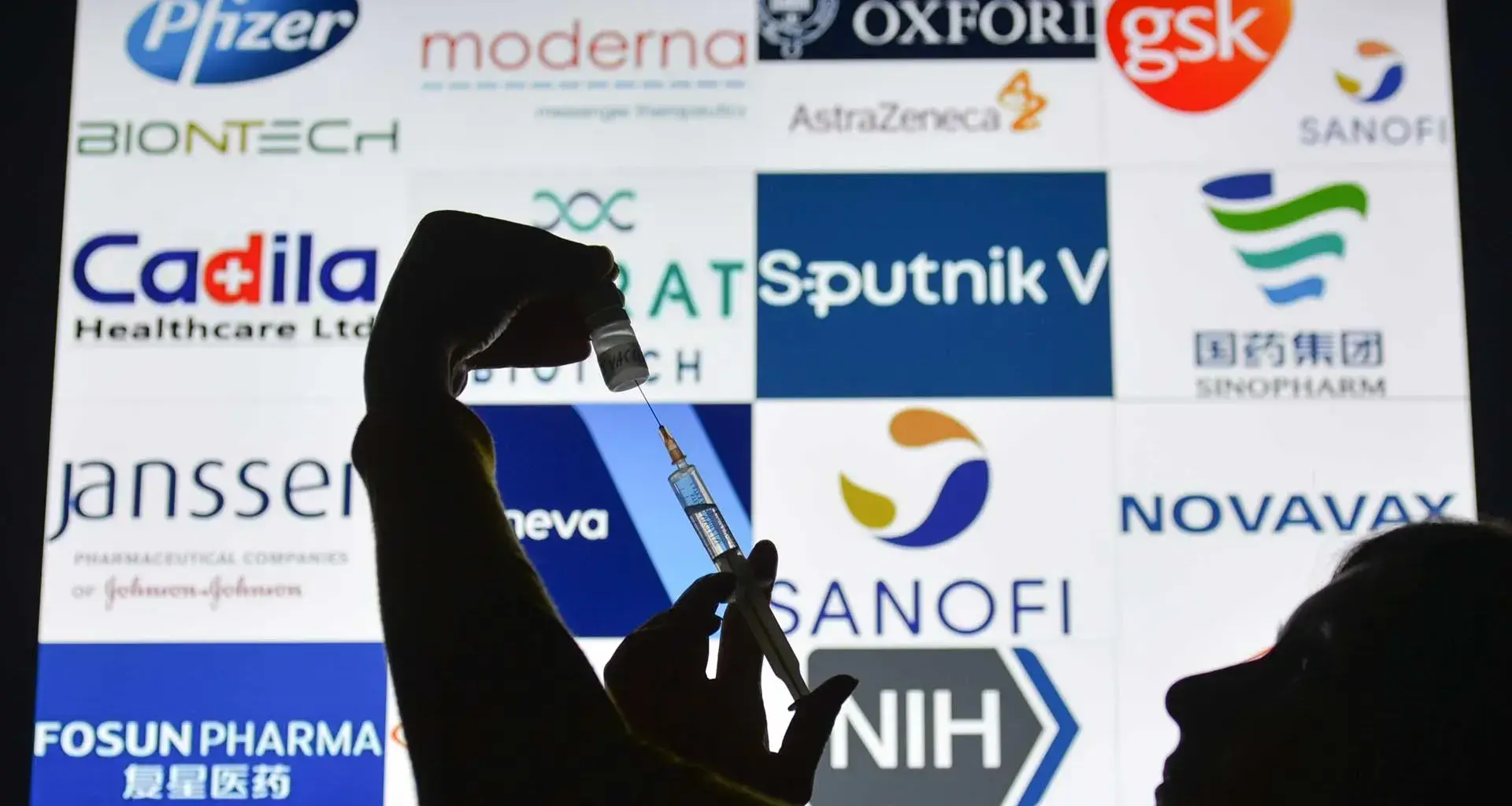How many COVID vaccines are there? Are they safe? Which one should I get? Which ones are available in Mexico?
Dr. Michel Martínez, head of the Epidemiological Surveillance Unit and leader of TecSalud’s COVID-19 Program, assures us that it is safe to get vaccinated and that it is important to do so with any vaccine available as part of the official vaccination scheme.
“People ask me, ‘Which vaccine should I get?’ I tell them to get the one you’re given, the one they offer you,” he says.
At CONECTA, we want to share information about COVID vaccines, their characteristics, and which ones Mexico has acquired for the population.
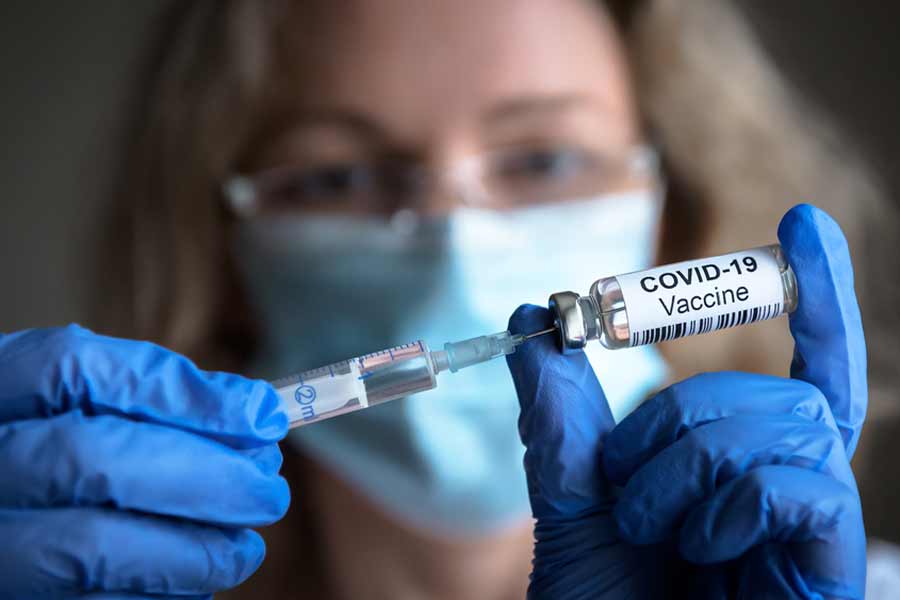
What are the main vaccines and what are their characteristics?
* Messenger RNA vaccines
- Pfizer-BioNTech (BNT162b2)
The first vaccine approved for worldwide application and the challenge of deep freezing it.
Country: United States of America – Germany
Administration: Intramuscular injection
Applications: 2
Period between applications: 21 days
Phase 3 efficacy: 95%
Efficacy against serious illness and death: 89%
Side effects: Pain, swelling and redness in the injected area; chills, tiredness, and headache in the rest of the body. Most were mild to moderate.
Storage: Deep-freezing (-80 degrees). With normal freezing, it has a shelf life of 5 days.
Cost: $20 dollars per application.
Status: approved in Mexico, United States, United Kingdom, and the European Union, mainly.
- Moderna (ARNm-1273)
A vaccine using cutting-edge technology, which does not need temperatures as cold as those required by the Pfizer vaccine.
Country: United States of America
Administration: Intramuscular injection
Applications: 2
Period between applications: 28 days
Phase 3 effectiveness: 94.1%
Efficacy against serious illness and death: 100%
Side effects: Pain, swelling and redness in the injected area; chills, tiredness, and headache in the rest of the body. Most were mild to moderate.
Storage: deep-freezing at -20 degrees. With normal freezing, it has a shelf life of 30 days.
Cost: $15-18 dollars per application.
Status: approved in the United States, United Kingdom, and the European Union, mainly.
- Curevac (CVnCoV)
A German messenger RNA vaccine being tested in Mexico.
Country: Germany
Administration: Intramuscular injection
Applications: 2
Period between applications: 28 days
Phase 3 efficacy: undetermined
Efficacy against serious illness and death: undetermined.
Side effects: Pain, swelling and redness in the injected area; chills, tiredness, and headache in the rest of the body.
Storage: deep-freezing; with normal freezing, it has a shelf life of 3 months.
Cost: undetermined
Status: currently in phase 3 studies in Mexico.
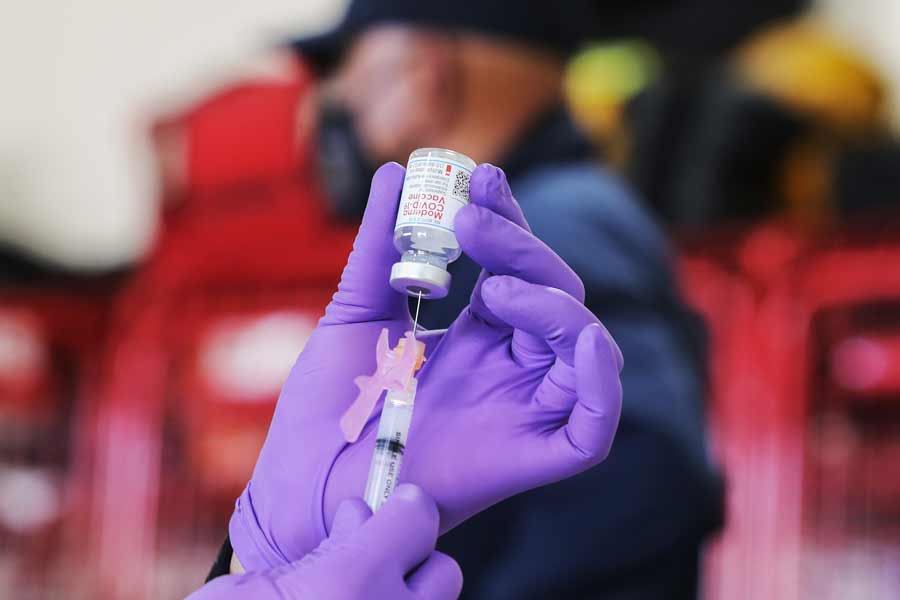
* Adenovirus or adenoviral vector vaccines
- AstraZeneca - Oxford (AZD1222).
The second vaccine approved in Mexico and one of the cheapest.
Country: United Kingdom
Administration: Intramuscular injection
Applications: 2
Period between applications: 28 days
Phase 3 efficacy: 70.4%
Efficacy against serious illness and death: 100%
Side effects: Pain, swelling and redness in the injected area; chills, tiredness, and headache in the rest of the body.
Storage: from 2-8 degrees; a shelf life of up to 6 months.
Cost: between $2 and $4.50 dollars per application.
Status: approved for emergency use in Mexico; approved in the European Union, Russia, Chile, Brazil, Japan, China, South Korea, Israel, United Kingdom, Australia, and others.
- Gamaleya Center (Sputnik V)
The first COVID-19 vaccine announced; the lack of data about its efficacy caused controversy.
Country: Russia
Administration: Intramuscular injection
Applications: 2
Period between applications: 21 days
Phase 3 efficacy: 91.6%
Efficacy against serious illness and death: 100%
Side effects: Pain, swelling and redness in the injected area; chills, tiredness, and headache in the rest of the body.
Storage: between 2 and 8 degrees
Cost: $10 dollars
Status: approved in Russia, Bolivia, Paraguay, Venezuela, Argentina and Mexico.
- CanSinoBIO
Chinese vaccine requiring just one application; Mexico has already negotiated the purchase of this vaccine.
Country: China
Administration: Intramuscular injection
Applications: 1
Phase 3 efficacy: undetermined
Efficacy against serious illness and death: undetermined.
Side effects: Pain, swelling and redness in the injected area; chills, tiredness, and headache in the rest of the body.
Storage: between 2 and 8 degrees
Cost: $4 dollars.
Status: applied to members of the Chinese military. In Mexico, Pakistan, Russia, and Chile, it is currently in phase 3 studies.
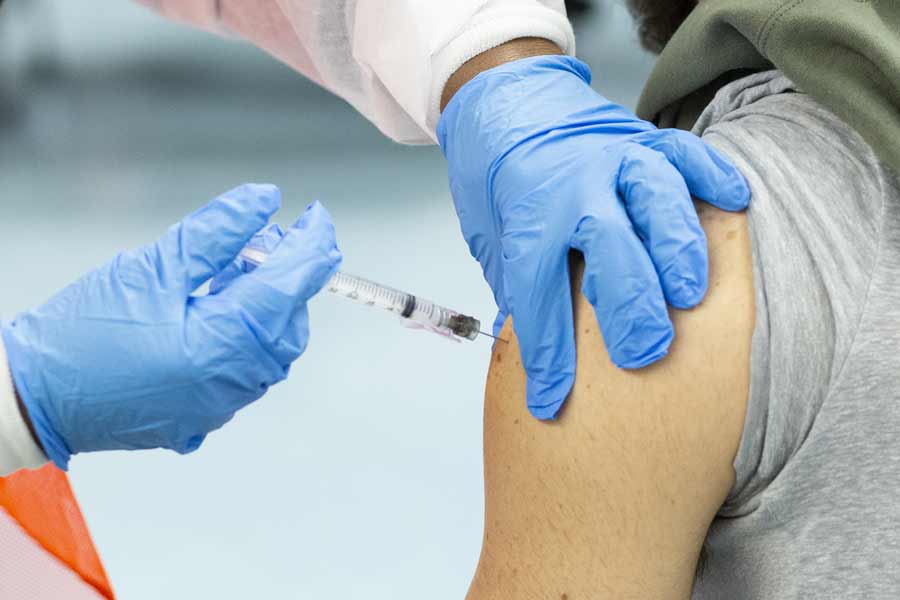
- Janssen - Johnson & Johnson (Ad26.COV2-S)
One of the few single-dose vaccines. Cheap and easy to distribute.
Country: United States of America
Administration: Intramuscular injection
Applications: 1
Phase 3 efficacy: 66% (preliminary)
Efficacy against serious illness and death: 85%
Side effects: Pain, swelling and redness in the injected area; chills, tiredness, and headache in the rest of the body. Most were mild to moderate.
Storage: between 2 and 8 degrees
Cost: less than $10 dollars per application
Status: currently in the process of authorization in the United States. In phase 3 studies in Mexico.
* Attenuated viruses
- Sinopharm (BBIBP-CorV)
This vaccine comes in two different versions developed from two patients, one from Wuhan and one from Beijing. It has been shown to be safe.
Country: China
Administration: Intramuscular injection
Applications: 2
Period between applications: 21 days
Phase 3 efficacy: 79%
Efficacy against serious illness and death: undetermined.
Side effects: Pain, swelling and redness in the injected area; chills, tiredness, and headache in the rest of the body.
Storage: between 2 and 8 degrees
Cost: undetermined
Status: approved in China.
- Sinovac (CoronoVac)
The vaccine meets the minimum efficacy of 50% required by the World Health Organization.
Country: China
Administration: Intramuscular injection
Applications: 2
Period between applications: 14 days
Phase 3 efficacy: 50%
Efficacy against serious illness and death: 50%
Side effects: Pain, swelling and redness in the injected area; chills, tiredness, and headache in the rest of the body.
Storage: between 2 and 8 degrees
Cost: undetermined
Status: approved in China.
* Protein subunits
- Novavax (NVX-CoV2373)
Vaccine with promising phase 3 results.
Country: United States of America
Administration: Intramuscular injection
Applications: 2
Period between applications: 21 days
Phase 3 efficacy: 89.3%
Efficacy against serious illness and death: 100%
Side effects: Pain, swelling and redness in the injected area; chills, tiredness, and headache in the rest of the body.
Storage: between 2 and 8 degrees
Cost: undetermined
Status: in phase 3 studies in Mexico.
- SANOFI-GlaxoSmithKline
Its launch has been delayed until the end of 2021.
Country: France - United Kingdom
Administration: Intramuscular injection
Applications: 2
Period between applications: 21 days
Current phase: 2
Status: Due to low immune responses, its release on to the market has been delayed until the end of 2021.
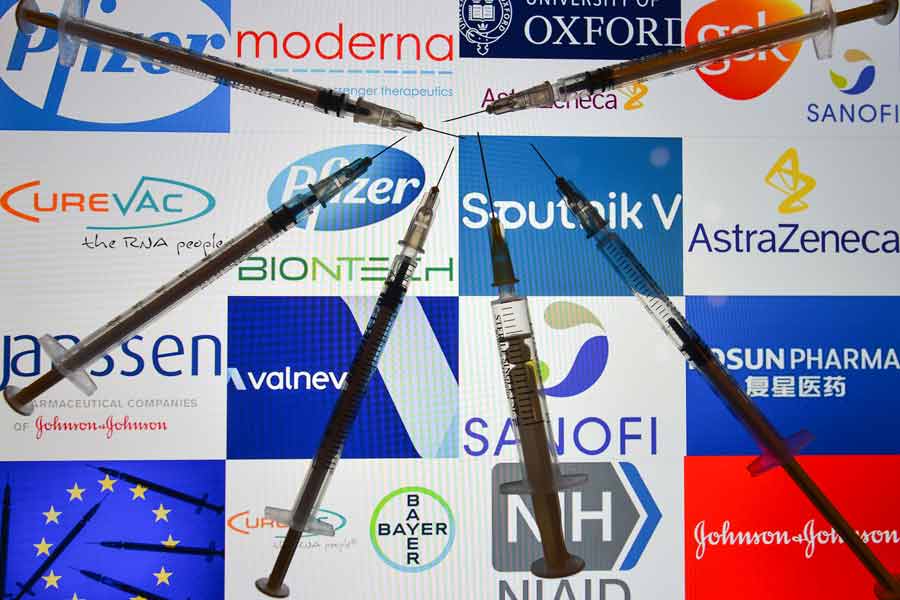
¿How do COVID vaccines work?
There are several different ways in which vaccines stimulate the generation of antibodies against the SARS-CoV-2 coronavirus:
- Messenger RNA
Dr. Martínez says this is the most innovative type of vaccine that currently exists: the way it generates antibodies has never been done before, although laboratory tests for the process were already taking place.
In this innovative technique, RNA fragments are injected with instructions telling the body how to produce antibodies against the SARS-CoV-2 spike protein. No attenuated virus fragments of any kind are used in the process.
By creating the protein, the body learns to defend itself against it. This means that if the real virus infects the body, it already has antibodies capable of fighting it.
Dr. Guillermo Torre, rector of TecSalud, says that this messenger RNA technology is a watershed for therapeutic options now and in the future.
“I’m convinced that this technology is going to be one of the most important biotechnological advances of the century, and I’m convinced that this will be useful for infections and cancer and cardiovascular problems,” he said.
Key features:
- These require 2 separate applications 21 to 28 days apart.
- They need to be stored at deep-freeze temperatures (-70 or -80 degrees Celsius).
- Once thawed for application, their lifespan varies from just a few hours to several days.
- Their average cost for governments is 30 to 40 dollars per dose.
- Adenovirus o adenoviral vector
These use a fragment of the coronavirus genetic code mixed with a harmless virus, an adenovirus vector, which serves to transport this genetic material into the human body.
“These viral vectors are harmless to humans,” Martínez said.
In the case of COVID vaccines, replicating (attenuated virus) or non-replicating (protein subunit) adenoviruses carry the spike protein that causes antibodies to be produced.
“For example, genetic material is added to a chimpanzee adenovirus. So, this virus causes a response without triggering the disease when given to humans via inoculation,” explained Martínez.
Some vaccines to combat diseases such as Ebola use these types of vectors.
- Key features:
- These can be stored using normal refrigeration.
- They require 1 to 2 doses, depending on the brand.
- Average cost to governments: $4 dollars per dose.
- Attenuated virus
This pioneering vaccine technique uses attenuated or dead microorganisms from the disease to generate immunity.
- Protein subunits
These include harmless parts of the virus that causes COVID-19 rather than the entire virus; in this case it’s just its proteins, which induce an immune response from the body.
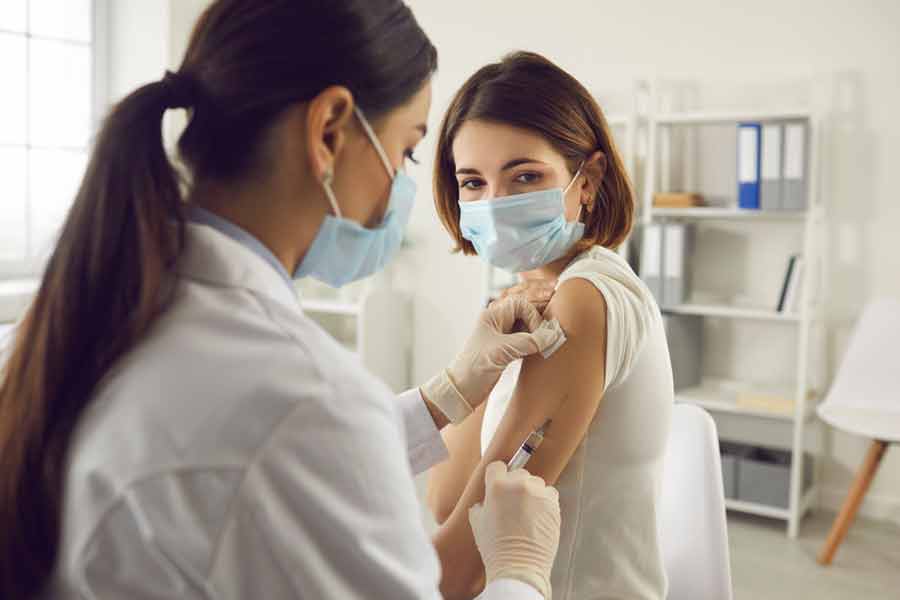
Which vaccines has the Mexican government negotiated to aacquired?
As of February 2021, 3 vaccines have been authorized by COFEPRIS for emergency use in Mexico: Pfizer - BioNTech (which is already being administered), AstraZeneca, and Sputnik V.
The Chinese CanSinoBio vaccine is also undergoing tests.
These are the vaccines that the Mexican government has negotiated to acquire to date:
- Pfizer/BioNTech
Enough vaccine to immunize 17.2 million Mexicans will be received between December 2020 and December 2021.
- AstraZeneca
Enough to immunize 30.8 million people.
- CanSinoBio
If approved, enough doses for 35 million Mexicans will be purchased.
- Sputnik V
The Mexican and Russian governments have reached an agreement whereby doses for 12 million people (24 million doses) will arrive in Mexico during 2021.
- COVAX mechanism
The international vaccine procurement mechanism allows centralized purchasing from various companies ensuring global distribution to at least 20% of the population in each country. Enough vaccines for 25.8 million Mexicans will be acquired in this way.
- Vaccines undergoing trials
Companies such as CureVac or Jannsen will be carrying out trials of their vaccines in Mexico during the first quarter of 2021.
ALSO READ:

